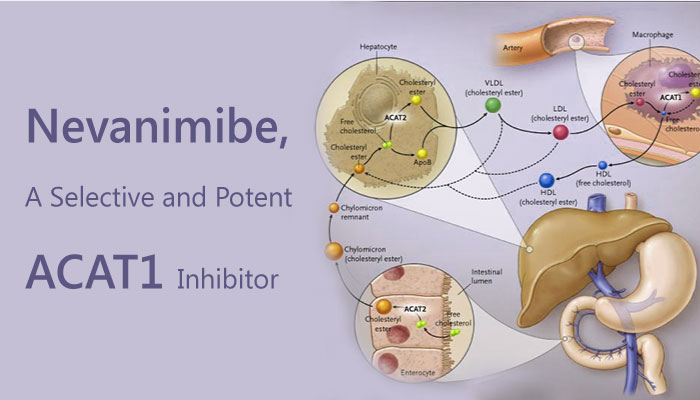Adrenocortical carcinoma (ACC) is a rare cancer of the adrenal cortex. ACC is highly aggressive with many patients presenting with metastases upon diagnosis. Therapeutic options for the treatment of ACC are limited until now. Therefore, there exists an urgent demand for new drugs that target key regulatory pathways in ACC cells. These new drugs can decrease tumor growth and ultimately increase survival of patients with ACC.
The enzymes acyl-coenzyme A (CoA):cholesterol acyltransferases (ACATs) are membrane-bound proteins that utilize long-chain fatty acyl-CoA and cholesterol to form cholesteryl esters. Additionally, ACATs play important roles in cellular cholesterol homeostasis in various tissues. There are two isoenzymes, ACAT1 and ACAT2 in mammals. These two enzymes are involved in storing cholesteryl esters as lipid droplets.
ACAT1 is an enzyme located in the endoplasmic reticulum (ER) membrane that catalyzes esterification of intracellular free cholesterol (FC). Moreover, inhibition of ACAT1 is a potential strategy for the treatment of several pathological conditions including hypercholesterolemia and atherosclerosis. Nevanimibe (ATR-101) is a selective and potent ACAT1 inhibitor. ATR-101 inhibits human ACAT1 (EC50=9 nM) compared with ACAT2 (EC50=368 nM). Besides, ATR-101 induces adrenocortical cell death occurs via apoptosis.

All in all, ATR-101 is an excellent drug candidate currently in development for the treatment of adrenocortical cancer.
Reference:
Endocrinology. 2016 May;157(5):1775-88.